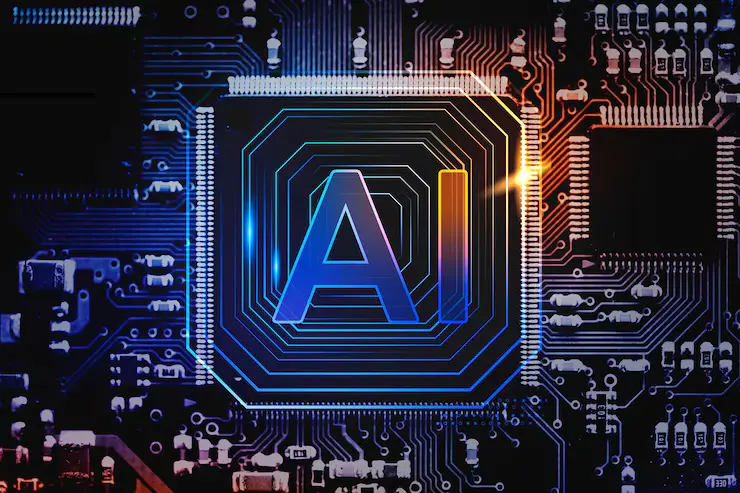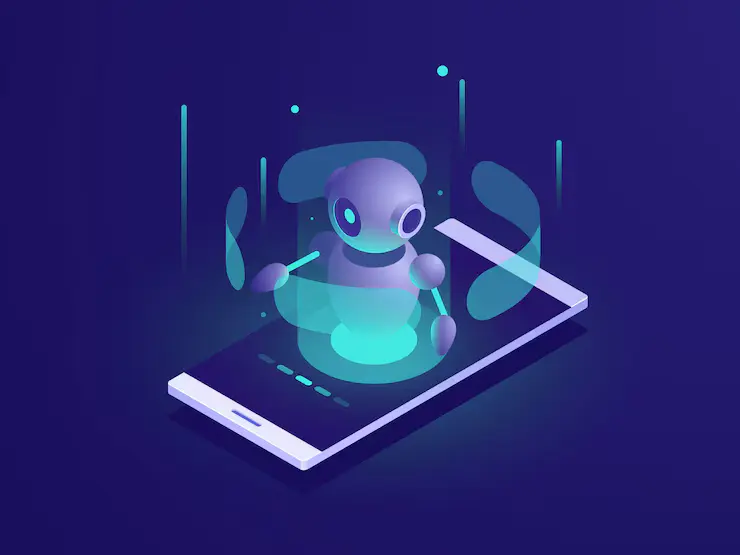Top Generative AI Company
In the dynamic and developing field of artificial intelligence, generative artificial intelligence (AI) is becoming a disruptive force that is altering how machines interact and produce information similar to that of humans. Among the early adopters of the group pushing the boundaries of this technology, one business stands out as an industry pioneer.
With its cutting-edge research and creative innovations, AI Creator Netleon has elevated the bar in the field of AI-powered content production. In addition to this, Netleon has ventured into Metaverse Development, further solidifying its position as a pioneer in the rapidly expanding digital landscape. With the support of a group of driven experts and an unmatched commitment to innovation, Netleon continues to push boundaries and make a name for itself in this fascinating sector
What is Generative AI?
Often referred to as “Generative AI”, artificial intelligence is a brand new and revolutionary phenomenon in artificial intelligence that has gained the interest of students, programmers, and the tech world. While supervised learning and data analysis are at the core of standard AI systems, generative AI is a field focused on enabling machines to create things iteratively in ways that mimic human creativity and intuition.
Basically, generative AI companies (AI) aim to give machines the ability to create data—text, photos, sounds, or even the entire virtual world—without the slightest human intervention. This opens up a world of possibilities, including deep mysteries in the generation of human writing as well as the creation of art, music, and more.

How Does Generative AI Work?
Companies that use generative AI create material autonomously by utilising advanced machine learning algorithms. It makes use of output models like genetic override networks (GANs), variable autoencoders (VAEs), and recurrent neural networks (RNNs). Large data sets are used to train these models, which aids in their comprehension of the patterns and structure of the data they come across.
For instance, a GAN consists of a discriminator and a generator, two neural networks that compete with one another to learn. Leveraging Blockchain development, this framework can ensure transparent and immutable record-keeping of generated data, enhancing trust and authenticity in the generated information.
How to Develop Generative AI Models?
Creating generative AI company models is a complex process that requires a thorough understanding of machine learning, access to computational power, and appropriate datasets. The key steps for creating a generative AI model are as follows:
- Define the term with purpose: Start by defining exactly what you want to do with your artificial intelligence model. Do you create music, paintings, prose, or something else entirely? Establish the right actions and expected results.
- Collect and Prepare Data: Collect large and diverse types of data relevant to your project. Make sure your data is clean, well-defined, and reflects what you want to create. Data quality is very important. Organize data as needed; this may include operations such as resizing images or inserting text.
- Choose a Generative Model: Determine the best generative model for the task at hand. Generative Adversarial Networks (GANs), Variational Autoencoders (VAEs), and Neural Networks (RNNs) are popular options. Unique problems and data types will determine the best model.
- Design and Train the Model: Create a neural network configuration for your chosen model and train it. For a given data set, listen to the model’s hyperparameters while looking at its output. Generative AI model training can be a computationally intensive process that often calls on GPUs or TPUs for acceleration.
- Good planning and iteration: Use time planning to keep the model less bulky and to make it more dynamic. Experiment with different hyperparameters and architecture variables to fine-tune the model.
What are the Applications of Generative AI?
With its foundation in sophisticated neural networks, generative AI finds extensive use in many different domains. Content production, including natural language generation for chatbots, automated content authoring, and even creative writing, is one of its main applications.
Generative AI is used in computer vision for tasks such as picture synthesis, style transfer, and image quality enhancement. It has enabled the next generation of artists, musicians, and designers, revolutionising the creative business. In the medical field, it helps in illness diagnosis and the creation of medical images.
Moreover, it’s employed in anonymization and data augmentation for datasets used in machine learning training. Recommendation systems are another area where generative AI is put to use, as it may provide users with tailored content recommendations.
What are generative AI startups?
Recently, there has been a notable surge in innovation in the artificial intelligence industry, with entrepreneurs spearheading the development of cutting-edge technologies. Among these, generative AI startups have garnered significant attention because to their inventive and manufacturing applications of AI that were previously unthinkable.
These companies stand out for their dedication to developing state-of-the-art generative AI solutions in a variety of fields, including the creation of images and content and natural language generation, as well as for providing cutting-edge applications that upend old markets and create new ones.
The ability to create human-like content—whether in the form of music, art, or other media—using advanced neural networks and production models is a key part of the AI industry. These businesses are driven by the desire to meet the needs of their customers while simultaneously pushing the limits of what AI can do in terms of creativity and problem-solving.
This review of generative AI companies startups will look at the development, tools, and practical applications that these fast-paced businesses are creating. Come as we explore the incredible journey of business AI innovation and how it is changing markets, reinventing creativity, and paving the way for a future that was never imagined before.
Who are the Artificial Intelligence makers?
Artificial intelligence has many scientists, engineers, researchers, and organisations involved. It is not endorsed by a single individual or set of “producers.” Instead, the development of AI is a collaborative effort led by well-known technological firms that set the bar for innovation and research, including Google, Microsoft, Facebook, and OpenAI.
These companies have made significant investments in AI research and development, advancing robots, machine learning, computer vision, and natural language processing. In addition, organisations, businesses, and lone researchers all around the world are crucial in the advancement of AI through their significant contributions, books, and open efforts. The global community of AI practitioners continues to work together to advance AI.

Conclusion
In conclusion, top generative AI companies are at the forefront of a transformative technology that is revolutionizing content creation, personalization, and automation across industries. These companies are pushing the boundaries of what AI can achieve, with applications in art, healthcare, marketing, and more. As they continue to innovate and refine their products, the impact of generative AI on businesses and society as a whole is expected to grow, opening new opportunities and possibilities for the future.
Frequently Asked Questions
Q1: What are the Benefits of Generative AI?
A1: Generative AI offers a wide range of benefits. It excels in content generation, automating the creation of text, images, and music, which saves time and resources. It fosters creativity, enabling the generation of art and design, and enhances personalization by tailoring content and recommendations to individual preferences. Generative AI plays a crucial role in data augmentation for machine learning and research, contributes to automation by streamlining various tasks, and boosts efficiency across industries.
Q2: What are the risks of generative AI?
A2: Deepfakes, misinformation, and the creation of harmful or misleading content are just a few of the concerns of the AI generation. It can be knowingly used for honest intentions, plagiarism, or fraud. Privacy concerns may arise from the creation of artificial intelligence data that looks like real people. Furthermore, AI-generated content can always be biassed and discriminatory. To reduce these hazards, ethical use, regulation, and responsible development are essential.
Q3: How will generative AI contribute to business value?
A3: Generative AI contributes to business value by streamlining content creation, enhancing personalization, and automating tasks. It can improve customer engagement and satisfaction, reduce operational costs, and support data-driven decision-making. Additionally, it fosters innovation, leading to the development of new products and services, ultimately increasing competitiveness and revenue potential for businesses.
Read More Blog:
Video Marketing Agency in 2024- Netleon
NFT Marketplace Development Company- Netleon
More Blogs You May Like
- How Organic SEO Services Keep Your Business Ahead in Search Results
- Blockchain Development Company in India
- Major Benefits of Social Media Marketing for Businesses
- Top Blockchain Development Company in the USA
- How Our GPS-Enabled Hire Driver Apps Ensure Accurate Tracking and Routing
- How to Identify the Best Partner for Custom Software Development?
- Best Projections and Trends of web development
- Shopify One Page Checkout- Netleon.com
- How do Digital Marketing Companies Transform Businesses in Digital Age?
- What is Flutter Developer | Flutter Developer Salary in India


